Sudan
The White House said Monday that the U.S. is helping from afar as thousands of Americans left behind in Sudan seek to escape fighting in the East African nation after the U.S. Embassy evacuated all of its diplomatic personnel over the weekend and shut down.
President Joe Biden's national security adviser, Jake Sullivan, defended the decision not to keep U.S. forces or diplomats in Sudan to help its citizens evacuate as several U.S. allies did and as the U.S. has often done in conflict zones in the past.
Instead, Sullivan told reporters, the U.S. was now remotely assisting Americans trying to flee the country by road.
U.S. assistance on Monday included helping Americans link up with convoys of foreigners now attempting to make it through fighting toward safety on Sudan's eastern border. The U.S. also is placing intelligence, surveillance, and reconnaissance assets over the route from the capital, Khartoum, to the country's main seaport, the Port of Sudan, to scope out safety threats, Sullivan said.
U.S. Secretary of State Antony Blinken said he had helped broker a 72-hour cease-fire to begin late Monday. It would extend a nominal truce coinciding with a Muslim holiday that brought almost no reduction in fighting but helped to facilitate the evacuations.
Sullivan said convoys with Americans in them were beginning to arrive at Port of Sudan on the Red Sea and the U.S. was working with neighboring countries to get them safely over the border.
Sudan's conflict involves two rival military leaders, the armed forces chief, Gen. Abdel-Fattah Burhan, and the head of the Rapid Support Forces paramilitary group, Gen. Mohammed Hamdan Dagalo, who 18 months ago joined forces to derail the nation's hoped-for transition to democracy.
On April 15, the two began battling between themselves for control of the country. The violence has killed hundreds and left millions of Sudanese seeking safety amid explosions, gunfire and armed fighters looting shops and homes.
Foreign governments have been airlifting hundreds of their diplomats and other citizens to safety as Sudan has spiraled into chaos.
In dramatic evacuation operations, convoys of foreign diplomats, teachers, students, workers and their families from dozens of countries have wound past combatants at tense front lines in Khartoum to reach extraction points.
Others have driven hundreds of miles to Sudan's east coast. A stream of European, Mideast, African and Asian military aircraft flew in all day Sunday and Monday to ferry them out.
France, Germany, Italy, Japan, Jordan, the Netherlands, Saudi Arabia, South Korea, Spain and Turkey are among the countries that have diplomats or troops in the country to evacuate their citizens and those of other countries. That is in contrast to a Biden administration decision that the situation was too dangerous to help private American citizens get out.
On Twitter over the weekend, some Saudis tweeted photos of evacuated Saudi citizens arriving in the Saudi port city of Jeddah and mocked the cautious U.S. response.
Saudi Arabia said Monday its Navy has evacuated 357 civilians from 27 countries, including two Americans.
On Sunday, U.S. special operations forces evacuated Americans from the U.S. Embassy, sweeping in and out of the capital with helicopters on the ground for less than an hour. No shots were fired and no major casualties were reported. U.S. officials said members of the Navy's elite Seal Team 6 were the main force in the evacuation, using helicopters piloted by the Army's 160th Special Operations Aviation Regiment.
In Sudan, an estimated 16,000 private U.S. citizens are registered with the embassy as being in Sudan. The figure is rough because not all Americans registered with the embassy or notified the embassy when they departed.
Sullivan reiterated that the administration continues to look at "every conceivable option" to help Americans get out of Sudan but is not considering troops.
"It is not standard practice for the United States to send in the U.S. military" to extract American citizens from war zones, Sullivan said. "We didn't do it in Libya. We didn't do it in Syria. We didn't do it in Yemen, and no we didn't do it in Ukraine. Afghanistan was a unique case involving the end of the 20-year war that the United States was centrally involved in."
However, Sullivan omitted several other recent instances in which U.S. forces deployed to get American citizens out of danger in foreign wars.
In 2006, the State Department and Department of Defense cooperated in one of the largest evacuations of Americans in modern times, using helicopters, warships and U.S.-contracted commercial ships to extract 15,000 Americans from Lebanon when cross-border fighting flared between Lebanon-based Hezbollah and Israel.



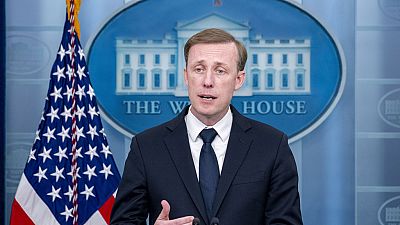

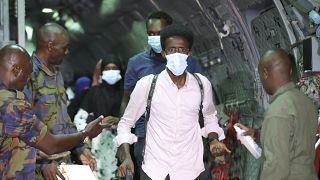
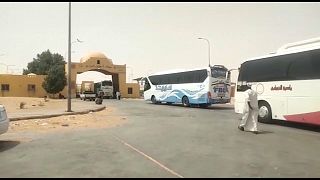
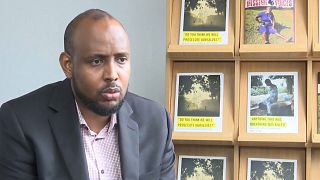
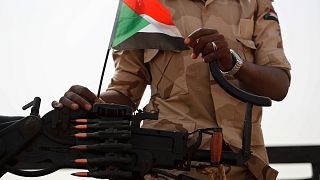
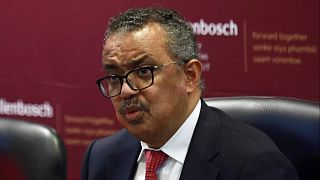
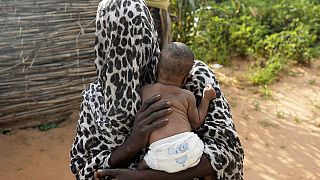



Go to video
Ruto's $9M mega church sparks outrage amid Kenya's crisis
Go to video
ICC warns of a dire humanitarian crisis in Sudan as the war rages on
Go to video
“I can’t do nuttin’ for ya man”, Nigerian Minister quotes Flavour Flav in rejection of Trump policy
01:00
Pix of the Day: July 10, 2025
Go to video
U.S. slashes visa duration for some African nationals amid policy shift
Go to video
Nigeria snubbed at White House summit, opposition blames Tinubu